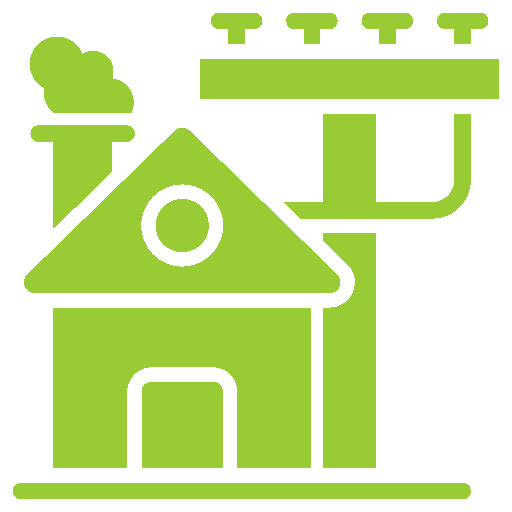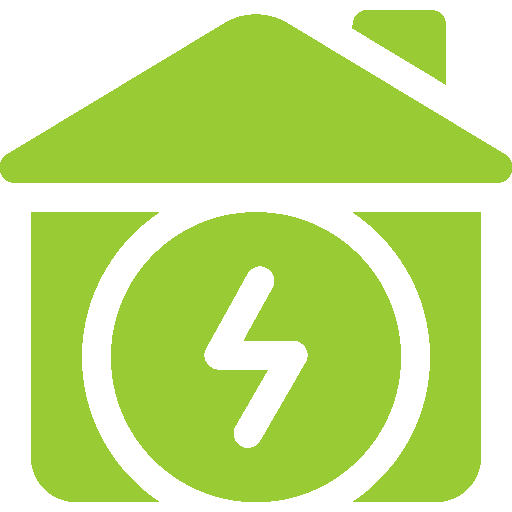Off-Grid & Grid-Tied
Which is Right for Your Home?
There are three types of solar panel systems:
grid-tied (on-grid), off-grid, and hybrid solar systems.
Each type of system has a unique setup that affects what equipment is used, the complexity of installation, and, most importantly, your potential costs and savings.

Grid-Tied Systems

Grid-tied systems are solar panel installations connected to the utility power grid. With a grid-connected system, a home can utilize both the solar energy produced by its solar panels and electricity from the utility grid.
If the solar panels generate more electricity than a home needs, the excess is sent to the grid. In some areas, utilities will purchase this surplus solar energy sent to the grid, providing bill credits to offset future electricity costs through a billing structure called net metering.
However, by connecting to the grid, you are also subject to certain rules. If the grid goes down, you will not have electricity. Thus, you will experience power outages unless you opt for a hybrid solution.
Additionally, you may still see minimal charges on your electricity bill even if your solar system provides 100% of your electricity.
✓ Cheapest home solar system
✓ Less equipment
X No backup power
Off-Grid Systems
Off-grid systems are completely disconnected from your power utility grid, relying solely on sunlight as their main energy source and making your system entirely self-sufficient.
This system is more complicated and therefore more expensive. To keep a house running off-grid, you need solar panels, a significant amount of battery storage, and usually another backup power source, such as a gas-powered generator. Although installation costs are higher, your only ongoing utility cost will be maintenance of the system, which is typically low.

An off-grid solar system works by capturing energy from solar panels and using it to charge a solar battery via a charge controller. The charge controller limits the electricity stored in the battery bank and protects it from overcharging. This electricity undergoes a conversion process into AC current using an off-grid inverter to power your home.
By storing electricity in its battery bank, this system allows your home to run exclusively on energy from the sun even during nighttime or on cloudy days. Moreover, as your solar system operates independently from the power grid, if there is a power outage, your solar system can continue operating, ensuring uninterrupted access to electricity.
✓ Provides electricity when power outages and where there is no grid access
✓ Self-reliant
✓ No utility cost, just system maintenance
X Very expensive
So, which one is better?
That depends exclusively on your needs and budget as they both have pros and cons. Another alternative, very popular nowadays for their cost-effectiveness, are hybrid systems.
Hybrid Systems
Hybrid solar systems combine the best of grid-tied and off-grid systems. They intelligently alternate between solar energy, battery storage, and grid electricity, ensuring efficient power usage. Furthermore, they ensure you remain unaffected by grid power outages as they provide backup energy.


Energy Storage Systems (ESS)
Energy Storage Systems are the kind of system that, as the name says, store energy for later use. Being the fully-integrated one the most evolved version of them, we'll invite you to discover how they work and why they are the most recommended choice for homeowners.
